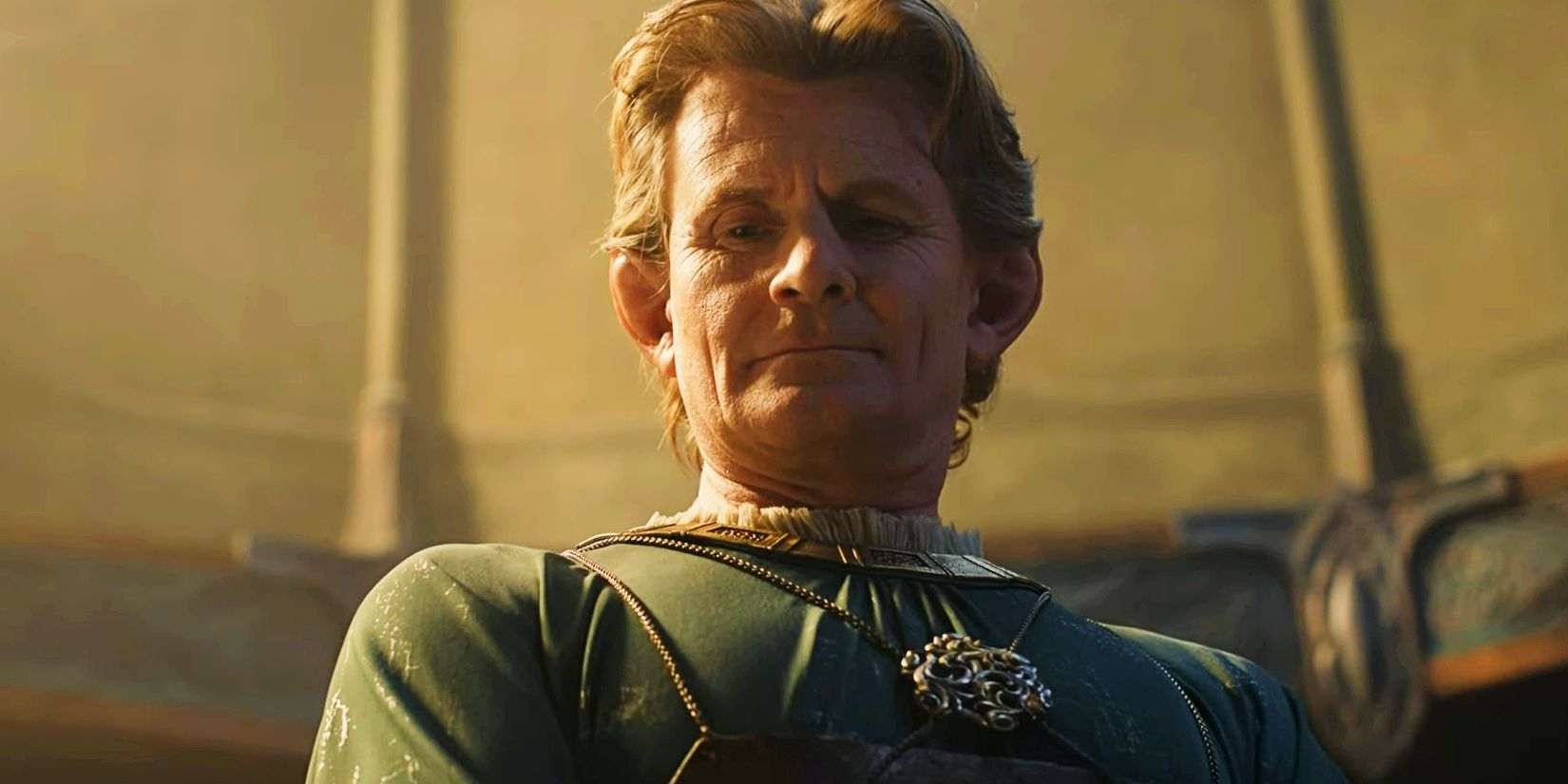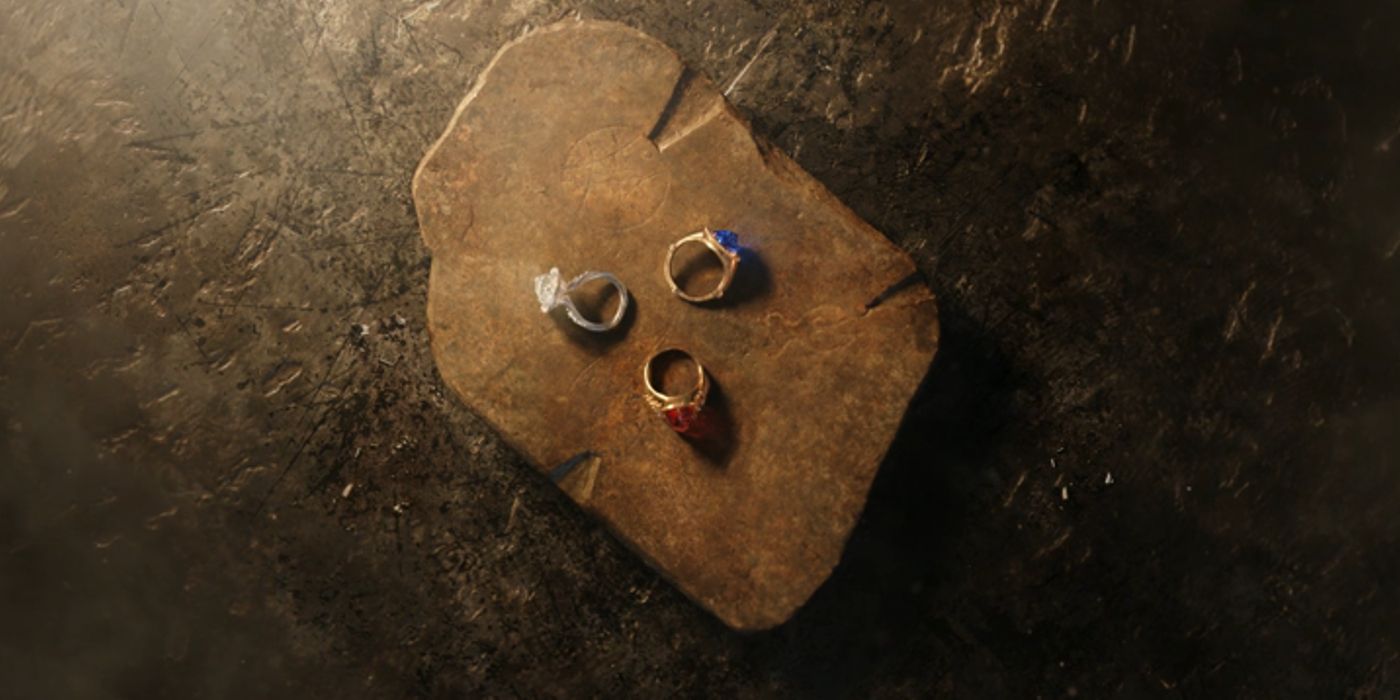The Rings of Power writer Gennifer Hutchison explains the changes made to The Lord of the Rings canon regarding the forging of the Elven rings in the season 1 finale. Hutchison, known for her work on Better Call Saul, co-wrote the season finale with showrunners J.D. Payne and Patrick McKay. The high-fantasy series has already been renewed for season 2, with filming commencing earlier this month.
The Rings of Power tells the story of Middle-earth's Second Age, thousands of years before J.R.R. Tolkien's The Lord of the Rings. The season finale saw Galadriel, Elrond, and Celebrimbor forging the Three Rings of power belonging to the Elves: Narya, Nenya, and Vilya. Tolkien's lore describes the Three as being forged after the Seven Rings of dwarves, the Nine Rings of men, and before Sauron's One Ring. However, The Rings of Power depicts the Three Rings being forged first, as a way to finalize the events of season 1.
In an interview with Inverse, Hutchison describes what inspired the choice to stray away from Tolkien's canon. She explains how season 1 was so focused on the journey of the elves, that symbolically the Three Rings had to be forged first to display that. She goes on to say how the series needed to have rings of power in it, given the show's title, and the forging of the Elven rings worked for the story, and not the established canon, so the story took precedent. Read her quote below:
So much of the season was about the elves and their journey, and Galadriel’s journey, and the fading [of Eregion]. So, we wanted to tie those rings into that story. It was about narrowing our focus down on them and having those rings cap off the season. Because we had to make rings. It felt like the climax of that arc, as opposed to trying to manage the timeline in a different way.
How This Tolkien Canon Change Could Affect The Rings Of Power's Future
Though not the most earth-shattering change to canon, The Rings of Power shows with the decision to forge the Elven rings first that maintaining Tolkien's lore is secondary to telling their story. Though some fans may have a problem with this philosophy, the writers have the option to make any decision they want to serve their story, and shouldn't be obligated to bend over backward for canon. With season 2 still a long way away, fans will have ample time to speculate on what other changes could come next.
Though The Rings of Power is far from perfect, its pure ambition and enchanting presentation suggest an even more compelling future for the series. If Hutchison and the other writers continue to explore alternative interpretations of the lore, it could shape up to be something really special for the high fantasy genre. In the end, The Rings Of Power is smartly building its own path with minor decisions like the Three Rings, but only time will tell how the gamble will pay off.
Source: Inverse


